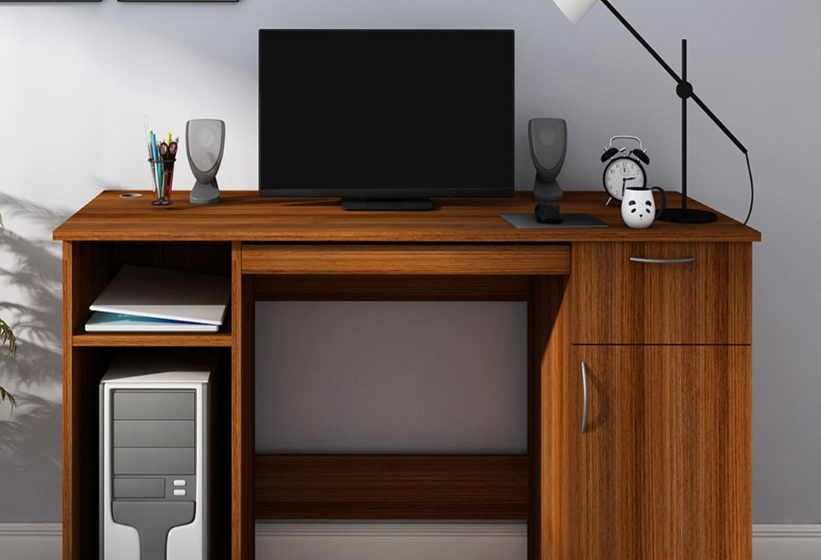A computer table is more than just a piece of furniture; it’s a cornerstone of an efficient and productive workspace. Whether you’re a student, a remote worker, or an entrepreneur, the right computer table can significantly impact your productivity. Understanding the essential features that make a great computer table is crucial in creating a workspace that fosters focus, organization, and comfort.
Ergonomic Design
One of the most critical aspects of a computer table is its ergonomic design. Opt for tables that offer adjustable height options to accommodate different users and promote a comfortable working posture. Ergonomic tables contribute to better spine alignment, reducing strain on your back, neck, and wrists, which can improve productivity and overall well-being during long work hours.
Sufficient Surface Area
A spacious surface area is essential to accommodate your computer or laptop, peripherals like a mouse and keyboard, and any additional tools or documents required for work. Consider your workflow and the equipment you use regularly to ensure the table provides ample space without feeling cluttered.
Cable Management
An efficient cable management system keeps wires and cables organized and out of sight. Look for computer tables with built-in cable trays, grommets, or compartments that allow you to route cables neatly. This not only maintains a tidy workspace but also minimizes the risk of tripping hazards and facilitates easy access to ports and outlets.
Storage Solutions
An organized workspace is conducive to productivity. Computer tables with built-in storage options like drawers, shelves, or compartments provide convenient space to store stationery, files, and other work essentials. Choose a table that offers storage solutions tailored to your specific needs to keep your workspace clutter-free and organized.
Sturdy Construction
Durability is key when selecting a computer table. Opt for tables made from high-quality materials such as solid wood, metal, or durable engineered wood that can withstand daily use. A sturdy construction ensures stability, preventing wobbling or shaking when working, which can disrupt concentration and focus.
Mobility and Flexibility
For those who require flexibility in their workspace arrangement, consider tables with wheels or casters for easy mobility. Tables that can be easily moved or repositioned allow for dynamic work setups, accommodating changes in environment or workflow as needed.
Additional Features
Some computer tables offer additional features that can further enhance productivity. This might include built-in charging ports, monitor stands, adjustable shelves, or even integrated lighting. Assess these extra features based on their utility and how they contribute to your specific work requirements.
Aesthetic Appeal
While functionality is paramount, the aesthetics of the computer table should not be overlooked. Choose a design that complements your workspace and personal style. A visually appealing table can contribute to a positive work environment, potentially boosting motivation and productivity.
Conclusion,
A Great computer table integrates a balance of ergonomic design, functionality, durability, and aesthetics to create an ideal workspace conducive to productivity. Understanding the importance of these features can guide you in selecting a computer table that maximizes efficiency and supports your work goals.

